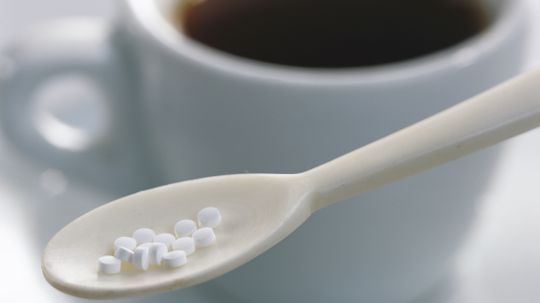Intriguing Insights into the Relationship between Artificial Sweeteners and Blood Sugar
The Intricate Connection: Unraveling the Mystery
Delving into the intricate connection between artificial sweeteners and blood sugar levels, we embark upon a journey to uncover the enigmatic relationship that lies beneath. While conventional wisdom may suggest that these sugar substitutes have no impact on our glucose levels, recent studies have shed light on a different perspective.
Contrary to popular belief, emerging research indicates that artificial sweeteners can indeed influence blood sugar regulation. These compounds possess an uncanny ability to stimulate taste receptors in our mouths, triggering a cascade of physiological responses within our bodies.
This stimulation prompts our pancreas to release insulin—a hormone responsible for regulating blood sugar—despite there being no actual rise in glucose levels. Consequently, this unexpected surge of insulin can disrupt the delicate balance required for optimal metabolic function.
Furthermore, some studies propose that consuming artificial sweeteners may lead to increased cravings for sugary foods due to their intense sweetness. This phenomenon could potentially result in higher overall calorie consumption and subsequent fluctuations in blood sugar levels.
An Ongoing Debate: The Controversial Findings
The scientific community remains divided regarding the true impact of artificial sweeteners on blood sugar regulation. While certain studies indicate a potential correlation between these additives and elevated glucose levels, others argue against such claims.
A key point of contention revolves around individual differences in response to artificial sweeteners. It appears that genetic variations among individuals play a significant role in determining how their bodies react when exposed to these substances.
Furthermore, it is essential to consider other lifestyle factors such as diet composition and physical activity level when evaluating the effects of artificial sweeteners on blood sugar. These variables can greatly influence an individual’s metabolic response, rendering it challenging to draw definitive conclusions.
As research in this field continues to evolve, it is crucial for scientists and health professionals alike to approach these findings with caution and maintain a balanced perspective.
Navigating the Sweet Terrain: Practical Implications
While the debate surrounding artificial sweeteners and blood sugar regulation persists, individuals seeking optimal health should exercise prudence when incorporating these additives into their diets.
Awareness of personal tolerance levels and potential genetic predispositions can guide one’s decision-making process. Experimenting with different types of sweeteners may help identify which options are better suited for maintaining stable blood sugar levels.
In addition, adopting a well-rounded dietary approach that prioritizes whole foods rich in essential nutrients remains paramount. By focusing on nourishing our bodies with wholesome ingredients rather than relying solely on artificial substitutes, we can promote overall wellness while mitigating potential risks associated with excessive consumption of these additives.
The Verdict: A Balanced Perspective
As we conclude our exploration into the impact of artificial sweeteners on blood sugar levels, it becomes evident that there is no definitive answer to this complex question. While some evidence suggests a potential link between these compounds and fluctuations in glucose regulation, further research is needed to establish concrete conclusions.
In light of this ongoing scientific discourse, maintaining a balanced perspective allows us to make informed decisions about our dietary choices without succumbing to unnecessary alarmism or complacency. Ultimately, understanding our own bodies’ unique responses empowers us to navigate the intricate terrain between sweetness and health conscientiously.
